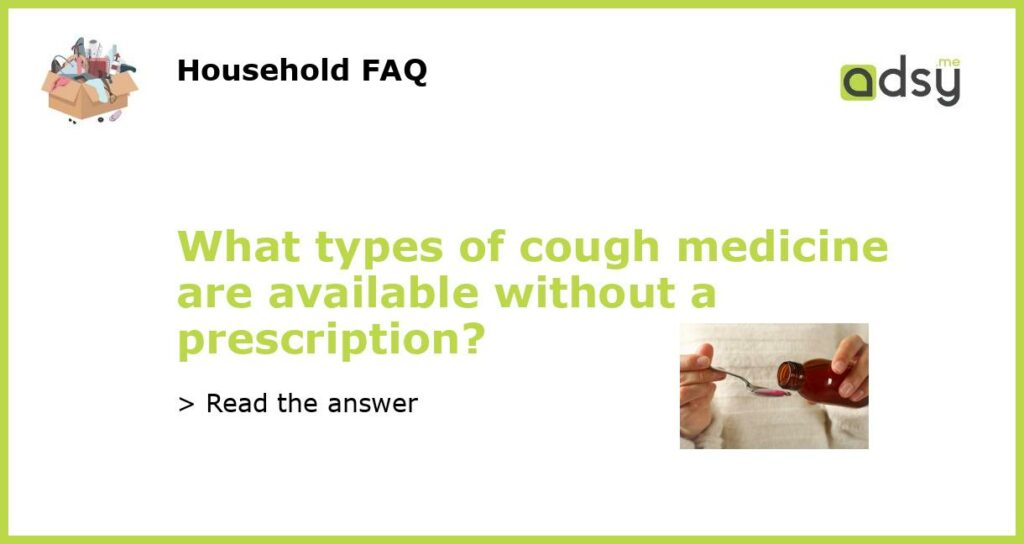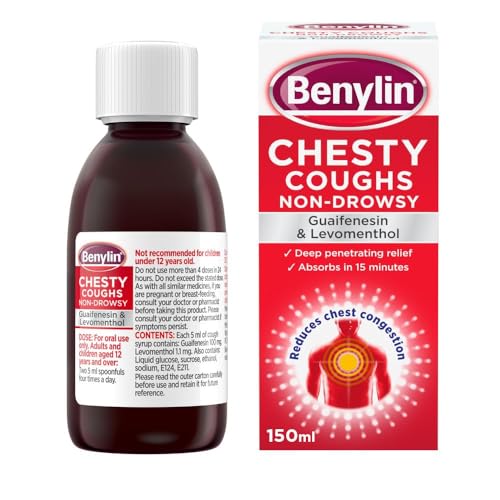Overview of OTC cough medicine
Over-the-counter (OTC) cough medicine is readily available in drug stores and supermarkets. These medications can help ease a cough caused by a variety of factors, including colds and respiratory infections, asthma, allergies, and acid reflux. Different types of OTC cough medicines are designed to treat different symptoms and are available in various forms, including liquids, tablets, and lozenges.
Expectorants
Expectorants are a type of OTC cough medicine that help loosen mucus in the lungs and airways, making it easier to cough up. They work by stimulating the flow of mucus and increasing the frequency and intensity of coughing. Some common ingredients in expectorant cough medicine include guaifenesin and ammonium chloride.
Suppressants
Cough suppressants work by blocking the cough reflex, reducing the frequency and intensity of coughing. They are particularly effective in treating dry coughs, where there is little or no mucus production. Dextromethorphan (DXM), a common ingredient in cough suppressant medicines, is a mild narcotic that helps to suppress the cough reflex in the brain.
Antihistamines
If your cough is caused by allergies, antihistamines can be an effective treatment. They work by blocking the histamine response in the body, which is the root cause of allergy symptoms. First-generation antihistamines, such as diphenhydramine, are particularly effective at treating coughs caused by allergies.
Natural remedies
In addition to OTC cough medicines, there are several natural remedies that can help alleviate cough symptoms. Honey is a natural cough suppressant that has been used for centuries, while steam inhalation with essential oils such as eucalyptus and peppermint can help soothe inflamed airways. Ginger, thyme, and chamomile are other natural remedies that can help reduce cough symptoms.






